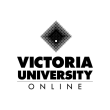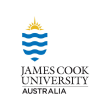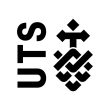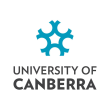
In non-clinical nursing jobs, nurses can apply their range of skills to influence healthcare systems, educate future nurses and positively affect policy.
Nursing is a critical frontline role in Australia’s healthcare system. Clinical practice in patient-facing roles is where many nurses start their careers. It’s where they complete placement hours to become a nurse and often where they progress to graduate-level roles.
However, beyond clinical settings, nurses have an array of opportunities to develop their careers in non-clinical nursing jobs in roles that recognise their unique skills and capabilities.
There are so many options and pros and cons to both clinical vs non-clinical roles in nursing. In this article, we discover the pathways and courses for nurses to advance their nursing careers.
Clinical vs non-clinical nursing jobs
In a clinical role, a nurse is directly involved in or overseeing patient care. Nurses assess patients and develop care plans, administer medications and work closely with other healthcare professionals to ensure the best outcomes for patients.
On the other hand, non-clinical nursing jobs don’t involve bedside nursing care. A nurse in a non-clinical role is more likely to be involved in academic and teaching roles, research, policy-making and management in a range of healthcare settings.
Di Geddes, director of disability and aged-care service provider Exceptional Care For You, has a wealth of experience in both clinical and non-clinical nursing settings. She has worked in a range of clinical environments along with roles in aged-care management and community disability and aged–care services.
“You can take the nurse out of a clinical role, but you can’t take the clinical skills and intuition out of the nurse,” she explains. “There are so many skills learnt in the clinical setting that I use every day in my current non-clinical role. Skills such as compassion, empathy, communication and organisational skills, priority setting and respect for all humans.”
Pros and cons of non-bedside nursing jobs
“Non-bedside nursing jobs can have their downsides,” Geddes says. “There isn’t always the same feeling of making a difference. Anyone who gets a dopamine hit from gratitude may miss that in a non-clinical role.”
For some people, non-clinical roles can feel lonely, and many nurses may not relish the idea of stepping into a leadership position, which is often required in non-clinical settings. Whether this is the right move for you is a highly personal choice.
However, non-bedside nursing jobs can be hugely rewarding for skilled nurses, offering an opportunity to advance their careers away from frontline clinical settings. Nurses considering a change will need to assess whether such a move aligns with their personal values, career goals and what they enjoy about nursing.
According to Geddes, the pros of non-clinical nursing jobs are the consistent working hours that don’t involve shift work, higher earning potential beyond a nursing salary and better working conditions. These roles also typically offer opportunities to make meaningful decisions and widen your knowledge base.
Non-clinical nursing jobs in Australia
If you’re considering a career shift to a non-clinical role, Geddes advises you to keep up your clinical skills in case you decide to return to a clinical role. “The grass isn’t always greener,” she adds.
She also says nurses should never underestimate their skills and experience.
“We make clinical decisions on best practice scientific principles,” she explains. “This positions us really well to make strong decisions that you can stand by in other roles. Also, your people and communication skills are invaluable in management roles.”
Below, you’ll find seven varied non-clinical nursing jobs to start you thinking about the possibilities for your career.
Community health management
As a community health manager, your job involves leading initiatives and programs that enhance the wellbeing of the population at a community level. The role encompasses planning, implementing and evaluating health programs, often focused on disease prevention, health education and access to care.
These roles are often available in public health departments, non-profit organisations or within the healthcare system. SEEK reports the average health manager salary as $130,000 per annum.
You’ll need skills in project management and community engagement, along with a strong knowledge of public health principles. Consider postgraduate study in public health or health leadership and management.
Federal and state health departments
Within health departments in each state and territory, there are ample opportunities for nurses seeking non-clinical roles. Working at a government department could involve anything from developing, implementing and evaluating healthy policies and programs to working on specific health projects.
If you’re interested in driving change at a population level and have an aptitude for strategic planning, this could be the path for you to pursue. To accelerate your career in this profession, consider postgraduate study in a public health field.
As a public service role, salaries are publicly available and dependent on the length of service and the level of the role.
Aged-care management
This leadership role involves overseeing operations in an aged-care environment, including staff management, budgeting and compliance. You might work in residential aged-care homes, community-based services or retirement villages.
Working in aged-care management requires strong leadership skills and a solid understanding of the unique challenges faced by elderly patients. The Master of Nursing (Chronic Disease and Ageing) from Victoria University can give you the knowledge you need to succeed in this type of role.
According to SEEK, the typical annual salary for a care manager in Australia is $115,000.


Hospital management
As a non-clinical role, hospital management focuses on a hospital system’s administration and overall operations. Hospital managers can manage budgets, oversee human resources and run facility operations without direct involvement in patient care.
Indeed reports that the average base salary for a hospital manager in Australia is approximately $110,000. Clinical experience in a hospital setting is a great foundation for moving into hospital management. A postgraduate qualification, like the Master of Healthcare Leadership from Southern Cross University, can complement this experience.
The courses below are listed by qualification level, from lowest to highest.










Health promotion
In health promotion, you use your clinical experience to improve the health of individuals and communities through education, policy-making and program delivery. These are critical roles in settings such as schools, workplaces and community organisations.
According to SEEK, the typical health promotion officer’s annual salary in Australia is $85,000. But it is projected that demand will grow significantly for health promotion roles over the next five years. The Victoria University Master of Public Health Specialising in Health Promotion is a relevant qualification that could open doors to higher salaries and opportunities.


Nursing education
As a nursing educator, you are responsible for equipping the next generation of nurses with the skills and knowledge they need to succeed. Working in an academic environment, you could design, implement and assess nursing curriculum.
If you enjoy teaching and mentoring or have a desire to influence the future of nursing, this is an ideal non-clinical nursing job. It’s important to note, however, that some nurse educators can also be found in clinical settings, supervising placement students.
As for salary, Indeed reports that the average nurse educator in Australia earns approximately $100,000 per annum. You’ll also need a postgraduate nursing education qualification, such as a Master of Nursing Majoring in Education from James Cook University.
The courses below are listed by qualification level, from lowest to highest.








Medical research
Another field with projected growth is medical research. This work is pivotal to driving the evolution of healthcare through evidence-based research that answers clinical questions.
To move into this type of role, you need to feel comfortable applying your clinical skills in a laboratory environment. The University of Technology Sydney offers a Graduate Certificate in Medical Science Innovation, which can serve as a bridge from clinical nursing to medical research.
SEEK reports that researchers in Australia typically earn an annual salary of $95,000.
The courses below are listed by qualification level, from lowest to highest.




Make your move
Are you considering stepping into a non-clinical nursing role? Explore the list of nursing courses from our partner universities to speak to a Student Enrolment Advisor about how postgraduate education can support you on your path to a new career.














